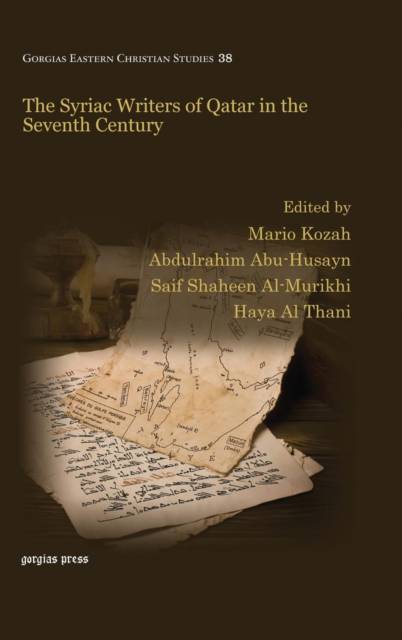
- Retrait gratuit dans votre magasin Club
- 7.000.000 titres dans notre catalogue
- Payer en toute sécurité
- Toujours un magasin près de chez vous
- Retrait gratuit dans votre magasin Club
- 7.000.000 titres dans notre catalogue
- Payer en toute sécurité
- Toujours un magasin près de chez vous
The Syriac Writers of Qatar in the Seventh Century
90,45 €
+ 180 points
Description
This edited volume presents a number of Syriac monastic and ascetical writers from the seventh century who were born and educated in Beth Qatraye (Syriac for Qatar or Region of the Qataris) of which Isaac of Nineveh of Qatar is considered to be the most influential of all Syriac monastic writers and who continues to exert a strong influence in monastic circles today. Many of the others like Dadisho of Qatar, Gabriel bar Lipeh of Qatar, Abraham bar Lipeh of Qatar, Gabriel Arya of Qatar, and Ahob of Qatar were important Syriac writers on spirituality and commentators or exegetes within the Church of the East tradition. These writers, who all originated from the Qatar region and were educated there, reveal the presence of an important school of education that rivaled in its sophistication the other more well-known schools such as the School of Nisibis or the School of Edessa. The Syriac writers of Qatar themselves produced some of the best and most sophisticated writing to be found in all Syriac literature of the seventh century. The Syriac writers of Qatar have not received the scholarly attention that they deserve in the last half century. This volume seeks to redress this underdevelopment by setting the standard for further research in the sub-field of Beth Qatraye studies. This volume includes papers presented at an international conference held at Qatar University in collaboration with the American University of Beirut entitled "The Syriac Writers of Qatar in the Seventh Century." The conference took place on 26-27 February, 2014. It was the first of its kind in the Gulf Region, and it brought together some of the most prominent scholars in Syriac Studies. The conference was part of a three year research project funded by the Qatar National Research Fund (QNRF) under its National Priorities Research Program (NPRP).
Spécifications
Parties prenantes
- Editeur:
Contenu
- Nombre de pages :
- 300
- Langue:
- Anglais
- Collection :
Caractéristiques
- EAN:
- 9781463205249
- Date de parution :
- 01-12-14
- Format:
- Livre relié
- Format numérique:
- Genaaid
- Dimensions :
- 152 mm x 229 mm
- Poids :
- 607 g






